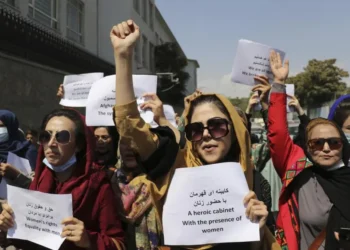n 2018, it was estimated by the UN Population Fund (UNFPA) that globally 68 million girls were at risk; now the figure stands at 70 million.
FGM, which many societies consider a cultural tradition, can result in long-term health and psychological problems.
The UN says that COVID-19 has disproportionately affected girls and women, resulting in what it calls “a shadow pandemic” disrupting the elimination of all harmful customs including, female genital mutilation.
On the International Day of Zero Tolerance for Female Genital Mutilation marked annually on 6 February, read more here about how girls and young women are speaking out against the practice.


















